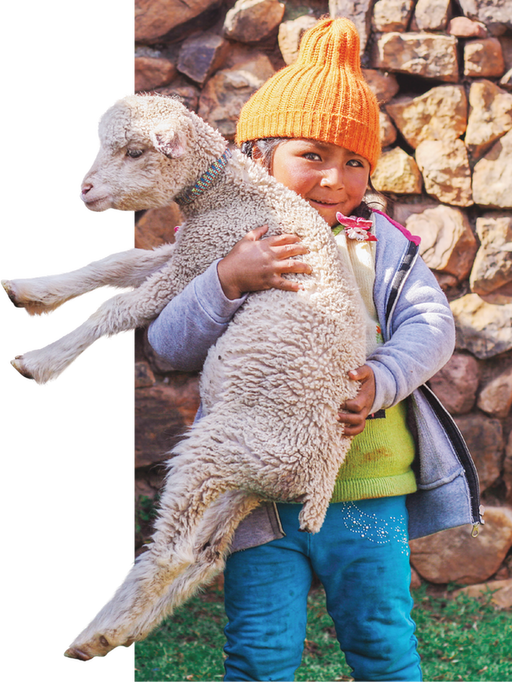
EveryoneinPunohelpsraisesheepand alpaca.
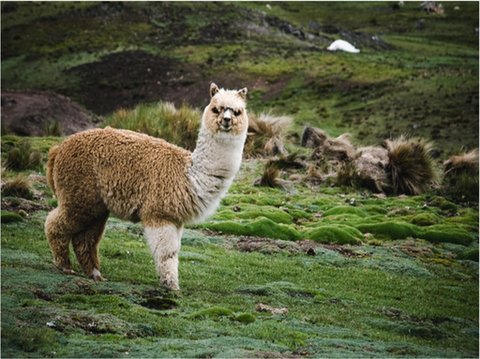
alpaca
Fieldwork
Asalinguisticanthropologist,Ihavetodo fieldwork. Thatmightmeantravelingtoafar‑offlocationtohearpeoplespeak.InPuno,Idoactual“field” work.Iherdsheepandalpacas.Iplantandharvestcrops.IworkalongsidethepeopleIamstudying.Forme,thisisperfect.IcanlistenforasignthatwhatpeoplearesayingisdifferentfromthelanguagesIalready know.
Whenherding,mynewneighborsandItaketheanimalstoahillsidetograze.Onthesewalks,IlearnaboutthepeopleIamwith.Ialsolearnaboutthelandwheretheyhavelivedalltheirlives.Ihelpfamiliespreparefieldstoplantthecropstheywillneedallyear.Andmyunderstandingofthesepeople grows.
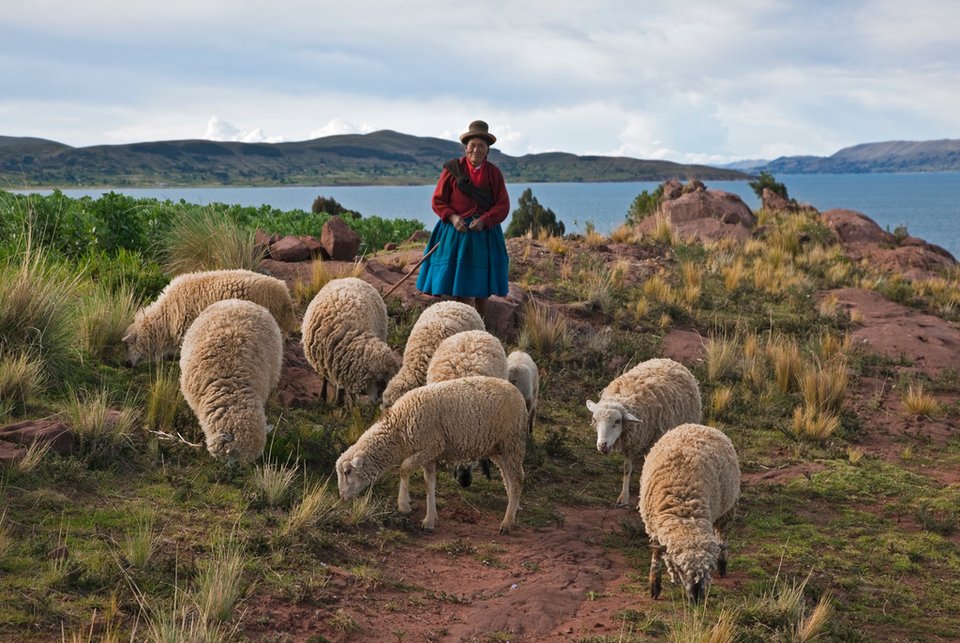


AwomanherdsherflockofsheepnearLake Titicaca.
CollectingTalk
Partofmystudiesincludesinterviewingpeople.Iaskthemtospeaktome.Thisiscalled elicitation.
Iaskpeopletosayspecificwordsorsentencesintomyrecorder.Later,Istudythesetounderstandhowtheyare spoken.
Othertimes,Idofree‑forminterviews.Peopletalkaboutwhatevertheylike.Theytellmeabouttheirlives.Theytellmelocalfolktalesortalkaboutthenews.Sometalkaboutthechangesintheregionandintheir languages.
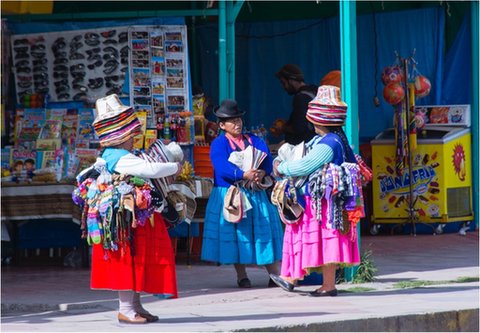
womeninPuno, Peru
Mostofthepeoplewhospeakwithmeare50yearsoldorolder.Manyspeaktheirlanguageswell.Butmanyyoungerpeopledonot.Theyonlyspeak Spanish.


Aymara:
Wali luphiwa
(wa-li lu-pee-wa)
English:
Itisreally sunny.
CelebratingLife
Thepeopleherelookforwaystocelebratelife.IaminvitedtoanannualplayaboutamanandawomanwhoaresaidtohavefoundedPuno.Thisisanotherchancetolistentotheindigenous languages.
IhadhopedtohearanewlanguageinPuno.OnethatIdidnotknow.WhilethepeopleheredospeakamixtureofQuechuaandAymara,Idon’thearanewlanguage.Still,Iconsidermytimeherewellspent.Ilearnedthereismuchmoretodiscoveraboutthesepeopleandtheirwonderful words.
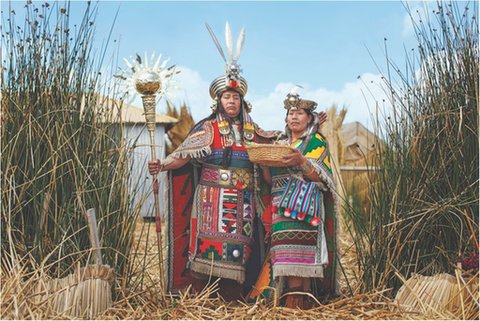
Actorspretendtobethemanandwomanwhofounded Puno.


Quechua:
Tupananchiskama
(tu-pa-naan-chis-ka-ma)
English:
Seeyou later!
GULF OF MEXICO
ATLANTIC
OCEAN
NORTH AMERICA
GUATEMALA
Santiaguito Complex
CARIBBEAN SEA
PACIFIC
OCEAN
SOUTH
AMERICA